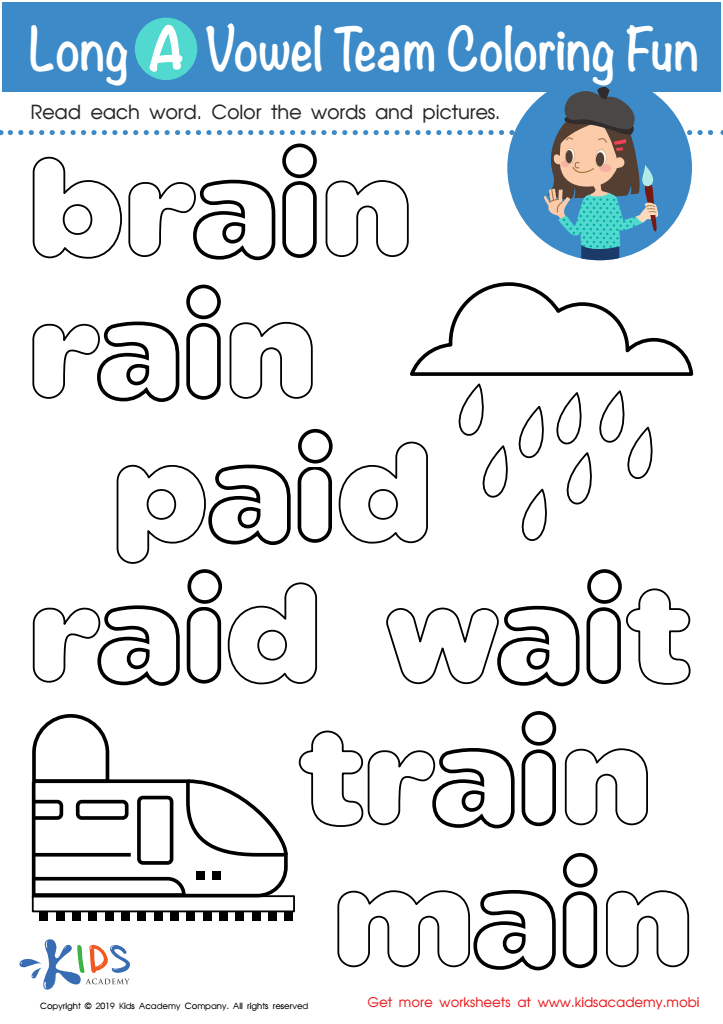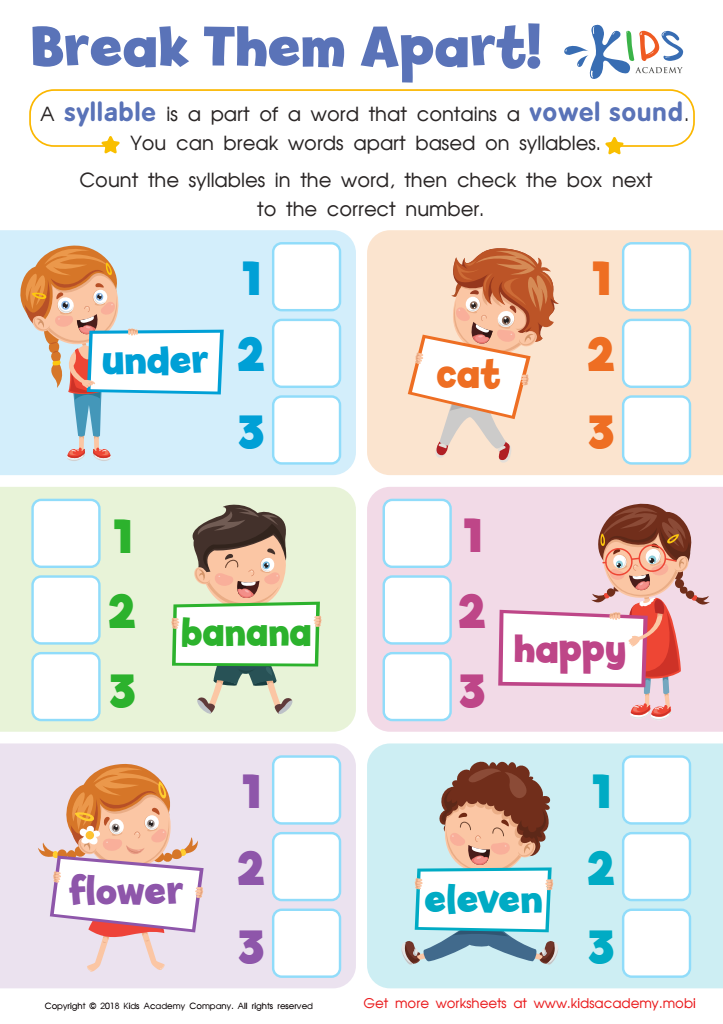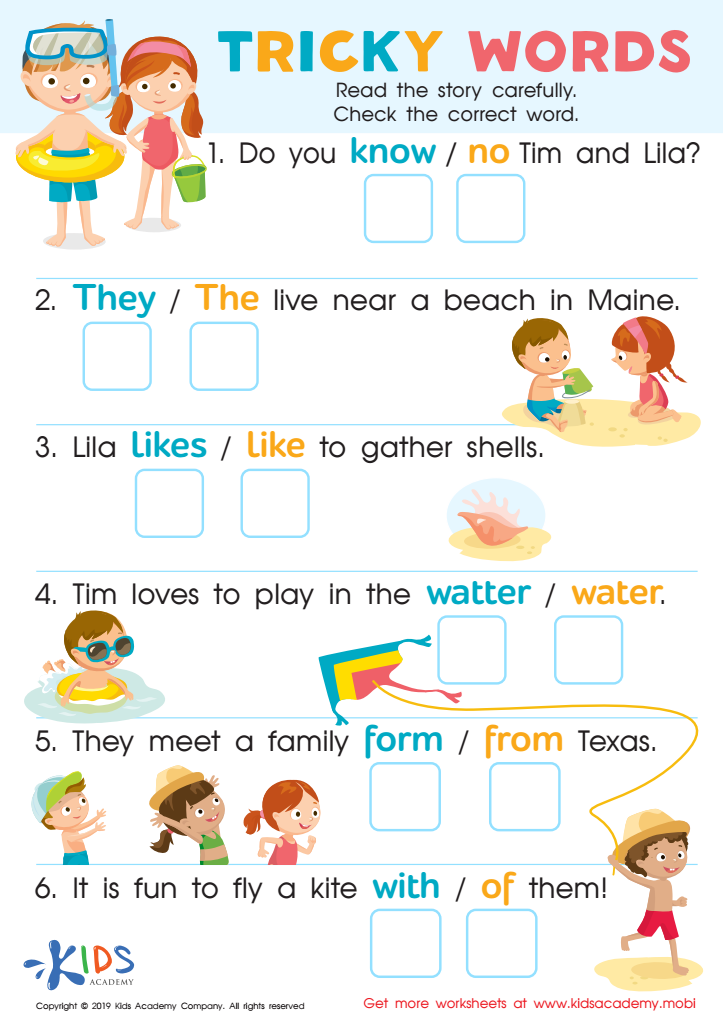Reading comprehension Normal Elementary Phonics Worksheets for Ages 6-8
5 filtered results
-
From - To
Discover our engaging Reading Comprehension Normal Elementary Phonics Worksheets designed specifically for ages 6-8. These worksheets help young learners improve their reading skills through fun and interactive activities that focus on phonics and comprehension. Each printable worksheet features colorful illustrations and age-appropriate texts that keep children motivated as they practice making connections between letters, sounds, and words. Ideal for both classroom and at-home learning, our resources nurture a love for reading while enhancing vocabulary and critical thinking skills. Help your child build a strong literacy foundation with our easy-to-use phonics worksheets tailored to early learners!


Long A Vowel Team Coloring Fun Worksheet


Reading: Break Them Apart Worksheet


Tricky Words Worksheet


Phonics and Word Recognition: Assessment 1 Worksheet


Long and Short E Worksheet
Reading comprehension and phonics are crucial for children aged 6-8, as they lay the foundation for lifelong literacy skills. At this stage, children transition from learning to read to reading to learn, making phonics—the relationship between sounds and letters—vital in decoding words. A solid understanding of phonics allows young readers to tackle unfamiliar words confidently, fostering independence and a desire to explore diverse texts.
Moreover, strong reading comprehension skills enable children to understand and engage with what they read, enhancing their critical thinking and cognitive abilities. When children can draw meaning from text, they are better equipped to navigate the academic landscape, as reading is integral across subjects, from science to social studies.
Teachers and parents play a pivotal role in developing these skills. By emphasizing phonics through engaging activities and encouraging daily reading, they can cultivate a rich literacy environment. Additionally, fostering a love for storytelling and discussion around texts can enhance comprehension and fluency.
In essence, by prioritizing reading comprehension and phonics, we empower children with essential skills that contribute not only to their academic success but also to their confidence and enjoyment of reading throughout their lives. Investing in these foundational abilities is a gift that yields benefits for years to come.
 Assign to My Students
Assign to My Students









